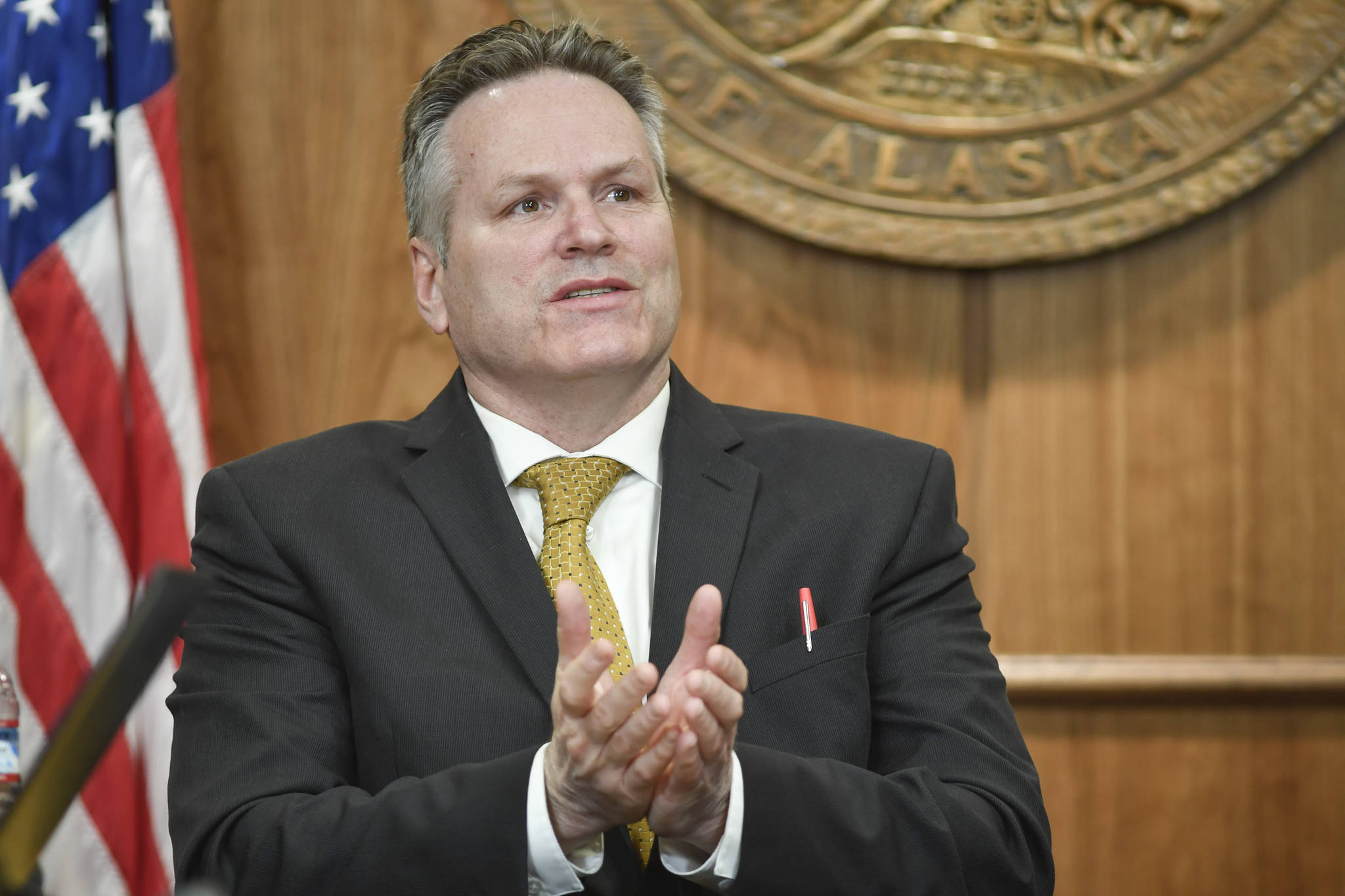Two U.S. Congressional Democrats are calling for an investigation into whether the State of Alaska misused federal grant funds from the U.S. Forest Service. But the Dunleavy administration is pushing back, saying the funds were appropriately used and the investigation is the result of a politically motivated attack.
“This is another example of extreme environmentalists deliberately cherry picking information to distort and mislead the American public and members of Congress,” Dunleavy said in a statement on Nov. 20. “I respectfully suggest Congressman Grijalva and Senator Stabenow do their homework before asking a federal agency to conduct a costly, time consuming and ultimately pointless investigation.”
U.S. Sen. Debbie Stabenow, D-Michigan, and U.S. Rep. Raúl Grijalva, D-New Mexico, sent a letter to U.S. Department of Agriculture Inspector General Phyllis Fong on Nov. 18 asking her to look at how Alaska used a $2 million federal grant. Stabenow is the ranking Democrat on the Senate Agriculture, Nutrition and Forestry Committee, and Grijalva is chairman of the House Natural Resources Committee.
Their inquiry follows a Sept. 24 news article by Elizabeth Jenkins at Alaska Public Media’s Alaska Energy Desk, that reported the state paid the Alaska Forest Association, a logging industry group, more than $200,000.
The grant was given to the state last year, as the USDA looks at lifting the Roadless Rule on the Tongass National Forest. That rule severely limits construction of new roads and has long been the target of governor’s administrations and business groups.
As part of that process, the USDA must partner with state and local entities as cooperating agencies to determine the effects of lifting the rule. Some of that money went to the AFA, which promotes logging in the Tongass, according to documents obtained by APM via a public records request.
Critics have said that was a misuse of funds, and that grant funds were meant for things like fire prevention, not industry groups.
“It is critical that we ensure this taxpayer funded grant was properly awarded and used,” Stabenow and Grijalva’s letter said.
But the governor’s website posted a response Nov. 20 entitled “Governor calls out distortion and misinformation regarding federal Roadless Rule grant.”
In the statement, the governor says AFA was given the funds to determine the economic and environmental impacts of logging were the rule to be lifted.
But the statement cites the wrong source for the allegations of misused funds.
“In July 2019, an extreme environmental organization based in Southeast Alaska filed a records request with (Department of Natural Resources) for documents relating to the grant,” it reads.
Following a request for comment from the Empire, the governor’s statement online removed any reference to the unnamed environmental group.
The group being referenced, the Southeast Alaska Conservation Council, did indeed file a records request but only after Jenkins did. In their letter, Stabenow and Grijalva cite the APM article from Sept. 24, not SEACC.
“Our timeline clearly shows that we received our initial public request after the KTOO story,” said Dan Cannon, Tongass Forest Program Manager at SEACC.
Cannon said SEACC filed its records request on Aug. 31, and received the information from the request on Oct. 17 after the news article was published.
The Alaska Department of Natural Resources put out a press release on Nov. 20 initially citing SEACC as the source of the funding allegations. After requests from APM and SEACC, that release was changed to identify Jenkins’ article as the primary source.
Cannon provided the Empire with a series of emails between SEACC and state officials requesting clarification.
As to what makes their organization “extreme,” Cannon said “if requesting information about how your state government is spending federal tax-payer money is extreme and radical, then it must be us.”
In an email to the Empire, Dunleavy spokesperson Jeff Turner did not address the question asking why the governor chose to call SEACC an extreme organization.
Turner did not immediately respond to a request for clarification.
• Contact reporter Peter Segall at 523-2228 or psegall@juneauempire.com.

